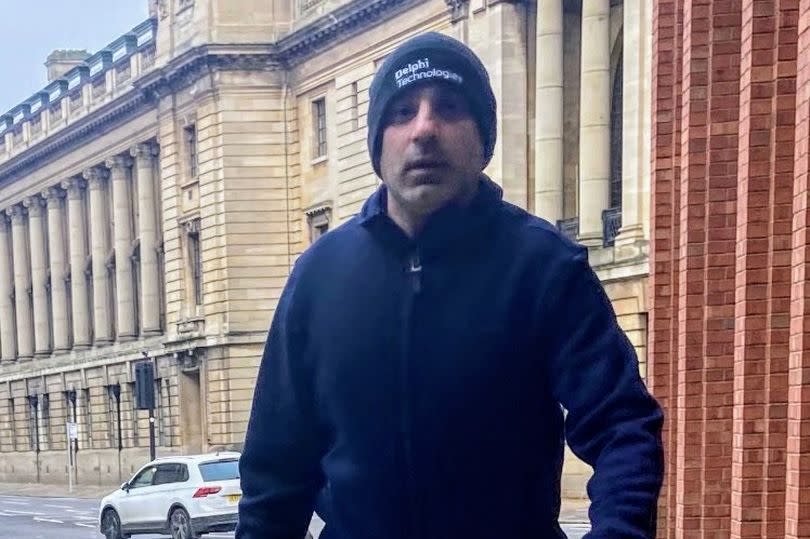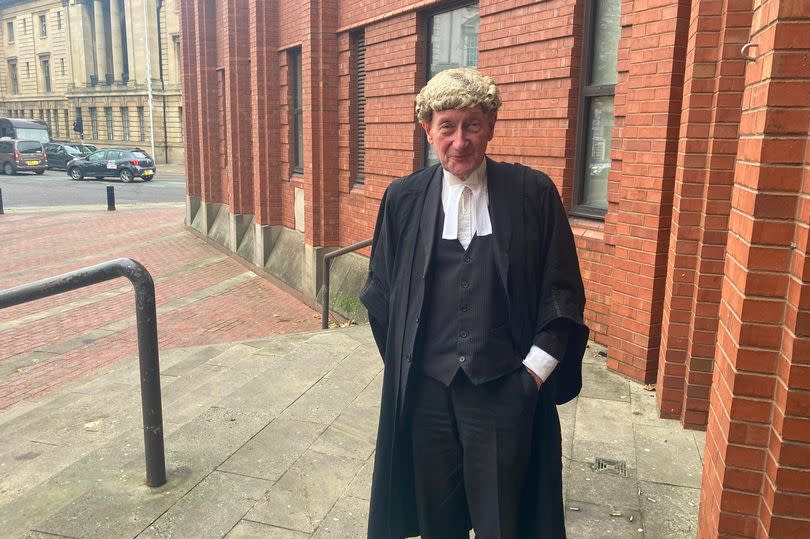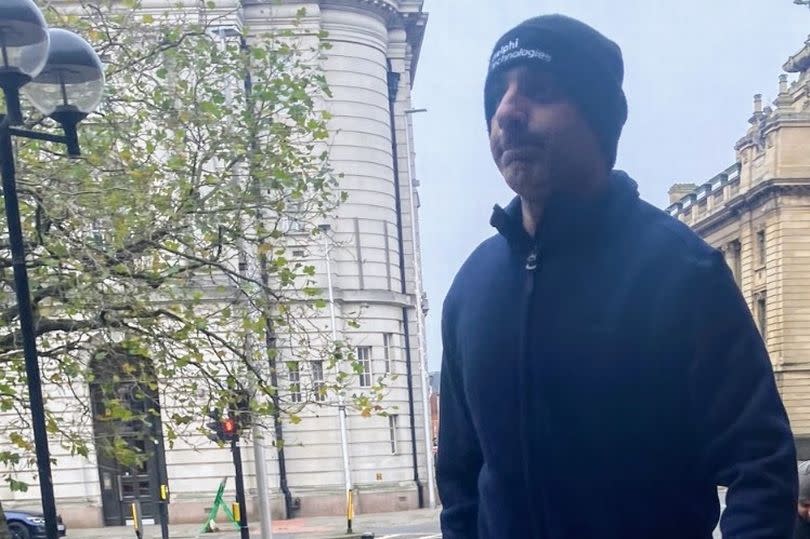The lying, the weed and the 'wardrobe' - secret cannabis factory was 'like Narnia'

Police found a secret cannabis factory that was so skilfully hidden inside the disguised entrance of an industrial yard that it was "a bit like Narnia" because it was the "commercial equivalent of a wardrobe".
The builder and property landlord behind the lucrative operation was careful not to leave even a hint of fingerprint, DNA or CCTV evidence to show his crucial supervisory role in running the "very discreet" cannabis farm next to his own house.
It would have been impossible for him not to know about the "clandestine" cannabis growing operation, even though he claimed to have nothing to do with it, but the very lack of any evidence to link him to it was conclusive proof of how "very clever" and professional he was in covering his tracks.
READ MORE:
The cannabis factory had a total of 615 plants growing there, with a potential value on the streets of £338,000, Hull Crown Court heard.
Majid Mahmood, 47, of Reynoldson Street, west Hull, denied being concerned in the production of cannabis on October 31, 2022 but he was convicted by a jury after a trial in November.
The conviction came after a vintage piece of prosecution by 83-year-old barrister Paul Genney, who turned what seemed to be a fatal flaw in the case into a strength and convinced the jury that Mahmood was lying.
The case came within an ace of being dropped altogether because of a supposed lack of direct evidence but Mr Genney argued that the very lack of any evidence was because Mahmood was so skilled at hiding what was going on.
Mr Genney told the trial that Mahmood had, at the time, lived in a house in Reynoldson Street for about two years when the matter came to light. He owned an "extensive property" next door, a large industrial storage area. There was a long passageway to a workshops area and outbuildings.
Police executed a search warrant there. "They raided these premises," said Mr Genney. "They started to cut open some metal gates at the side that led into Mahmood's yard and into his house subsequently."
Mahmood appeared and he told the police: "No need to open the gates. I'll open them for you." He was arrested and police went into the workshop area of the industrial part of the premises and found two Albanian men, who spoke no English.
"They were gardeners, people who lived in those factory premises and looked after and tended a rather large cannabis crop," said Mr Genney. "They also, together with Mahmood, were arrested.
"Police began to go through the industrial buildings and they discovered two rooms full of growing cannabis plants.

"There was also a corridor leading into a stock room and they found, in the stock room, more plant pots ready for follow-on crops. There were carbon filters and ducting to remove smells and bring in fresh air.
"There was shelving that contained rather a lot of fresh food and a number of chest freezers and frozen food. This was food to keep the gardeners going.
"There were showers and toilets and two single beds. They were pretty well taken care of. There was also a nursery for young plants. It was a fairly professional set-up.
"There was fertiliser and pesticide and all the paraphernalia of a cannabis grow." There were 276 cannabis plants, 60cm high, in one room and 339 plants, 110cm high, in another room, making a total of 615 growing plants.
There were halogen lamps and thermostats. "Everything was there that was needed," said Mr Genney. The police later valued the potential yield of the cannabis factory at £169,000 wholesale or £338,000 on the streets.
Mahmood's house next door was searched but "there was not a lot there" apart from £3,018 cash and some euros. He claimed during police interview that he knew nothing whatsoever about the cannabis factory.
He claimed that he owned the premises but had let them to tenants and he had a tenancy agreement. They paid their rent, he claimed.
"The prosecution say that the workshop was used by Mahmood to get into the main cannabis factory," said Mr Genney. "Inside the workshop was a locker and, when you open the doors of the locker, there is a gap in the wall.
"It's a bit like Narnia. It's the commercial equivalent of a wardrobe."

When someone went into the first workshop, there was a metal cabin and a hole in the wall, enabling the person to walk through into the cannabis farm. Mahmood had a "supervisory" role and the entry system allowed him to go into the cannabis factory without having to go into the street.
"It was all very discreet," said Mr Genney. "The people running the cannabis factory, Mahmood says, he did not know. He said that the tenants could come and go as they pleased by the main block.
"To get into the workshop, he needed to let them in via keys that he had. The police took a fairly sceptical view."
Mahmood claimed that the cannabis factory was nothing to do with him. "He said that he didn't know anything and it was nothing to do with him," said Mr Genney.
He claimed that he was a "jobbing builder" and that the cash found was for building work. "There were no fingerprints of Mahmood anywhere in the cannabis factory," said Mr Genney.
"There was nothing incriminating on his mobile phone. There was no DNA. Police seized 30 days of CCTV showing parts of his yard. There was nothing on the CCTV of a suspicious nature."
But Mr Genney claimed: "It was a clandestine route in. It would be impossible to live next door within yards of this substantial cannabis farm and not be aware over that month of what was going on.
"This defendant is higher up the chain than the Albanians. They are gardeners. They are at the very bottom. This defendant is very clever.
"It's not likely that there will be fingerprints and DNA. He is careful to distance himself from the actual operation. He won't be taking CCTV of himself up to no good. The tenancy agreement was a sham to give himself cover to distance himself from the operation."
Mahmood represented himself during the trial and he said that he had lived in Hull for 33 years and had a son, then aged 14. He was a single parent and he worked as a builder and a landlord.
He said that he rented out the yard to people that he did not know. He claimed that the first day that he discovered the cannabis factory was when the police raided it.
"It turned my life upset down," he claimed. "Why would I now lie?" He claimed that he had no financial benefit and that there was no evidence that he was aware of the cannabis factory.
"It would be utterly crazy for me to have any involvement in any criminal activity here," he claimed. "I have no knowledge of any crime being committed in the unit. I don't live a lavish lifestyle. I am representing myself because I could not afford to pay legal aid."
There was a lengthy delay after the guilty verdict in the November trial, with the case finally being listed for sentence nearly six months later at a resumed hearing before Leeds Crown Court. Mahmood, who had been on bail, was jailed for four years.

 Yahoo News
Yahoo News 
